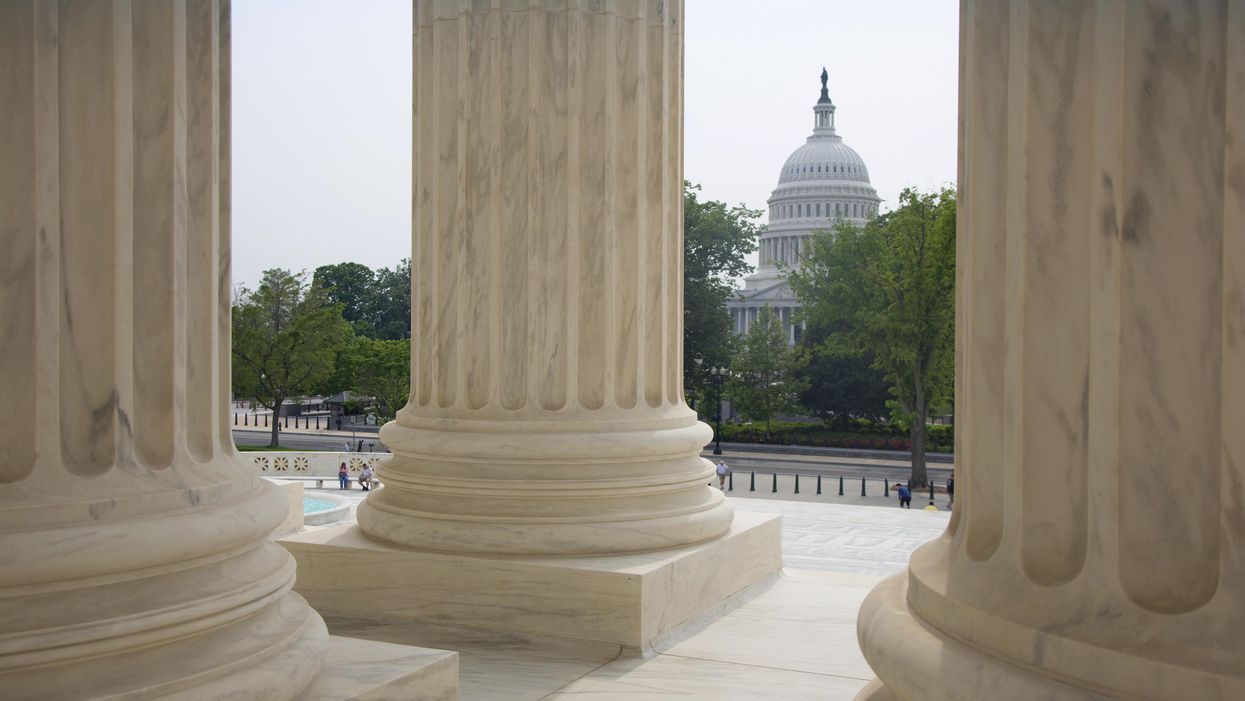The continuing disintegration of political cohesion in democracies throughout the world, the rise of authoritarian populism within democracies and the increasing suppressions of entrenched authoritarian regimes have created a growing crisis of failing governance around the globe.
The real-world turmoil and trauma driving our governing dysfunctions — political strife and economic inequalities, pandemics, floods, fires, debilitating storms, racial reckonings, and dehumanization of "others" — are bedeviling virtually every economic and political system on every continent throughout the world.
Representative democracies, including most specifically our own constitutional republic, cannot reform our cultural, economic and political institutions to better serve the needs and interests of our citizens and to meet the exigencies of the 21st century until we define a collective purpose and shared meaning that transcends ideology and special interests.
Narrow purpose, party dogmas and rigid ideologies of certainty are endemic to modern cultures, belief systems and political narratives. Spread relentlessly by hyperpartisan, for-profit communications companies and social media, our prejudices, biases and hatreds fester in the body politic like a metastatic cancer.
However, a healthy, constitutionally ordained representative republic cannot forever endure the toxins of resentment and vengeance without forfeiting the ideals of liberty, justice and opportunity for all.
Humans cannot thrive, much less survive, without a conscious, courageous and enduring declaration of faith in ourselves and our institutions.
Faith is not simply a religious precept; it is the foundation of human dignity and mutual responsibility. It is the means by which our species finds the will to hope and dream, accepts one another in spite of our differences and discovers common purpose in collective identity.
Faith requires a leap from logic; a belief in the future we have not yet seen or experienced. It begins as a figment of imagination. It manifests as a willingness to entertain affirmative human possibilities.
In these fraught times, it is worth trying to discern the elementary "faiths" that define 21st century core beliefs that are necessary to advance classic liberal democracy and combat authoritarianism in America and throughout the world.
The exigencies of the 21st century require a set of beliefs that transcend ideology, tribalism, nationalism, party and special interests. For Americans, this means conscious commitment to five basic faiths that advance an affirmative view of human nature and enable healthy self-governance:
- Faith in one another: belief that America's diversity, like diversity within all plant and animal species, is both a survival strength and a precondition for human thriving. As one of the most diverse countries on earth, America's continuing struggles for inclusion, cultural and social integration and political cohesion have been a central feature of our nation's experience since its founding. Only through respect for the dignity of each person and faith in Jesus' directive to "do unto others as you would have them do unto you" can human beings discover our mutual interests, common purposes and shared destinies.
- Faith in our Constitution: belief in the ideals enshrined in our Constitution that liberty, justice and opportunity for all are the foundations of human creativity, security and prosperity; and that no matter how long or hard the struggle to realize these ideals has been, and will continue to be, we have abiding faith in our collective ability to perfect ourselves and advance our collective interests.
- Faith in government: belief that a constitutional republic form of self-governance, rule of law, and fair and free elections ensure a government capable of functioning by, for and of the people. It also includes believing that this system is best capable of reforming itself and protecting against capture by narrow ideologies and special interests.
- Faith in free markets: belief that civil and economic freedoms are inextricable liberties and the bedrock of our constitutional republic form of government. Innovation, capital formation, fair and free markets, wealth creation, and business success create engines of dynamic change, much of the work that inspires human productivity, and the profits, if fairly distributed, that can ensure prosperity for the greatest number. Democracies that enable, and appropriately harness the excesses of, free markets will optimize liberty, justice and opportunity for all.
- Faith in global interdependence: belief that our global challenges require whole-world solutions that are dependent on global cooperation. Adversaries and allies alike contribute to our global problems and must share responsibility for addressing them effectively. Innovating and empowering means, methods, and mechanisms for agreeing on the dimensions of common challenges, framing cooperative solutions and accepting mutual responsibilities for their amelioration is a 21st century imperative. We have become an interdependent world in which acceptance of our common interests and destinies is central to human, national and global survival and salvation.
Faith is the essential building block for constructive interpersonal relationships and productive institutional cooperation. Our collective abilities to thrive in the years and decades to come are dependent on restoring the values of truth, trust, reason and civility in our human interactions. It is in our self- and mutual interests to find the will, courage and strategies necessary to have abiding faith in ourselves, our institutions, our communities and our nation.




















